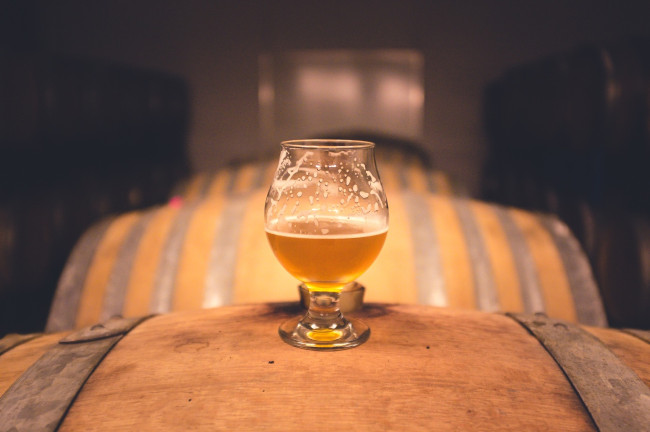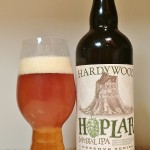Pa. Liquor Board grants $2 million to produce and promote local beers and wines in 2021

From a press release:
Last month, the Pennsylvania Liquor Control Board approved grants totaling $2,016,699.35 for 18 projects to increase the production of Pennsylvania-made malt and brewed beverages and enhance the Pennsylvania beer industry through promotion, marketing, and research-based programs and projects, and to enhance the Pennsylvania wine industry and increase production of Pennsylvania-made wines.
“So many of Pennsylvania’s industries have been damaged by the COVID-19 public health crisis, and that includes our food and beverage industry,” said PLCB Chairman Tim Holden.
“These grants will fund projects that research new farming and pest control methods, develop new and improve existing production processes, and promote these diverse and vitally important Pennsylvania businesses at a time when they need our support.”
Act 39 of 2016 created the Pennsylvania Malt and Brewed Beverages Industry Promotion Board within the Department of Agriculture and authorized the PLCB to approve up to $1 million annually for development and marketing of the Pennsylvania beer industry. The Pennsylvania Fiscal Code also allows for unallocated beer grant funds to be made available in subsequent years. Since the first beer grants were approved in 2017, the PLCB has awarded more than $3.8 million in grants to support the Pennsylvania beer industry.
The following 12 beer projects totaling $1,122,520.35 were recommended for approval to the PLCB by the Pennsylvania Malt and Brewed Beverages Industry Promotion Board:
Poured in PA: The Series 2021: Grant funds will be used to continue producing “Poured in PA: The Series,” introduced in June of 2020, with 16 to 20 more episodes in 2021. The series is a tool breweries and others connected to the industry use to show how Pennsylvania breweries produce some of the best beer in the world, even during very challenging times. $160,000, GK Visual, LLC
Beer Tourism Recovery Grant to Promote Craft Breweries of Greater Philadelphia: Marketing efforts to support the economic recovery of Pennsylvania breweries by driving more people to visit breweries, increasing the number of breweries people visit, and boosting sales at breweries in the Philadelphia region, while also continuing to brand greater Philadelphia and Pennsylvania as a premier destination for craft beer and brewery experiences. $150,000, Visit Philadelphia
Pennsylvania Brews: Production, distribution, and marketing for 13 episodes of an online show highlighting attractions along Pennsylvania’s 13 beer trails. Video content will educate and excite beer enthusiasts in Pennsylvania, New York, New Jersey, and Ohio about the quality and quantity of options being brewed in Pennsylvania. $150,000, PA Media Group
Stabilize the Local Craft Beer Supply Chain through Grain and Hops Storage Expansion: Construction of a grain storage bin and assembly of hops cooler/freezer storage as a centralized storage location for malting barley and processed hops in Western Pennsylvania in order to address and manage fluctuations in the craft beer supply chain, sustain small farms harvest to harvest, and support production of Pennsylvania malting barley and hops without impacting the premiums paid to Pennsylvania farmers and hop growers. $138,900, CNC Malt
Malting Equipment: Increasing Quality, Consistency, and Availability of PA-Grown Malt While Reducing Costs to PA Breweries: Manufacturing project to design, fabricate, and commission a new five-ton germination/kiln drum malting system to improve the quality, consistency, and availability of local Pennsylvania-grown malt to benefit Pennsylvania craft breweries, Pennsylvania family farmers, Pennsylvania craft beer consumers, and the local malt supply chain. This project will aim to reduce the cost of craft malt, passing those savings on to breweries while maintaining a high premium value for farmers. $100,000, Double Eagle Malt, LLC
Optimizing Hopping Protocols in Beer for Predictable Chemistry and Quality: Research project to compare the extraction of key hop phytochemicals in a panel of laboratory-brewed beers with differing final ABV and hop addition regimens using chromatographic approaches, and to determine the impact of final ABV and hop addition regimens on sensory properties of beer using sensory mapping with beer consumers. $96,906, Penn State University
Fresh Fest 2021: Growing the Black Craft Beer Community in the U.S.: Grant will support Fresh Fest 2021, a black beer festival in Pittsburgh attracting 3,000 participants and showcasing the country’s most talented black-owned breweries and collaboration with black artists, influencers, entrepreneurs, and politicians, all to support diversity and inclusion in craft beer ownership, consumption, and representation. Event planners hope for an in-person event in August of 2021 but may host a virtual event if appropriate. Project will also measure impact of the event on participants’ lives, businesses, and craft beer spending. $75,000, Drinking Partners, LLC
Lake Erie Ale Trail Marketing Expansion: Grant to expand Lake Erie Ale Trail marketing efforts and staffing, increasing beer tourism at 13 locally owned breweries through greater awareness of the abundance and diversity of locally manufactured craft beer. $73,000 Lake Erie Ale Trail (LEAT)
Professional Development and Education Programs for Professional Brewers: District Pittsburgh MBAA to increase attendance in meetings, webinars, and digital tastings through high-quality speakers and relevant educational content. Project will also develop a quality control testing program for local breweries to measure microbiological contaminants. $71,138.35, District Pittsburgh of the Master Brewers Association of the Americas (MBAA)
Optimizing Processing of Gluten Free Grains for Improved Wort Fermentability: Project to investigate the impact of processing conditions, including milling size and liquor: grist ratios on gelatinization temperatures and fermentability of gluten-free grains in order to optimize physical processing parameters to improve starch gelatinization and nutrient extraction for the benefit of brewers seeking to develop gluten-free beers. $65,381, Penn State College of Agricultural Sciences
Summer Brewery Academy: The Summer Brewing Academy will be introduced in the summer of 2021 as a continuing education opportunity focusing on existing small batch brewers looking to grow and impact the production of beer in Pennsylvania. The two-course series will provide hands-on education into the science of brewing beer and a series of guest lecturers from District Pittsburgh of the Master Brewers Association of the Americas discussing the local craft brewing industry and craft brewery operations. $28,695, Point Park University
Cumberland Valley Beer Trail Digital Passport: Enhance the beer trail experience by implementing a digital passport that will facilitate passport management through a smartphone, tablet, or computer and provide real-time updates on dozens of participating locations and the special offers, coupons, and events they provide. $13,500, Cumberland Area Economic Development Corporation (CAEDC)
Act 39 of 2016 also expanded the Pennsylvania Wine Marketing and Research Board and authorized the PLCB to approve up to $1 million annually for wine research and promotion. Since the first wine grants were approved in 2017, the PLCB has awarded nearly $5 million in grants to support the Pennsylvania wine industry.
The six wine projects totaling $894,179, summarized below, were recommended for approval by the Pennsylvania Wine Marketing and Research Board:
Pennsylvania Wines Statewide Recovery Marketing: An integrated and proactive marketing campaign to engage the public and help Pennsylvania wineries compete for visitation and sales as the industry faces challenging and uncertain times due to the COVID-19 pandemic. To lead the recovery of the Pennsylvania wine industry and help wineries get back to business, the PWA will use the recently introduced “Pennsylvania Wines Pair Well” campaign and related initiatives to safely attract new visitors to wineries and raise the regional and national visibility of Pennsylvania’s diverse and high-quality wines, as well as provide useful marketing and public engagement tools for wineries and industry stakeholders. $550,000, Pennsylvania Winery Association (PWA)
Understanding the Impacts of COVID-19 on Consumer Ethnocentrism and At-Home Consumption of PA Wines: Mixed-methods approach combining an online survey and an at-home tasting experiment to gain insights into consumer perception of Pennsylvania wines during and after the pandemic and to understand what flavor profiles best align with at-home consumption. This research will inform how best to market local wines for at-home consumption to residents in the mid-Atlantic region. $109,042, Penn State College of Agricultural Sciences
Improving PA Wine Quality Through Enhanced Diagnostic Capabilities for Wine and Grape Quality Parameters: Since maintaining quality is essential to the recovery of the Pennsylvania wine industry from COVID-19, this project will build capacity for improvement of diagnostic abilities to enhance wine and grape quality through industry surveys, investment in new diagnostic lab equipment, measurements of quality parameters, hands-on extension education on grape and wine analysis, and discussion of issues and challenges through extension visits and industry communications. $99,188, Penn State Department of Food Science
Life History Traits of Spotted Lanternfly Feeding on Different Grapevine Cultivars: As management of invasive species spotted lanternfly (SLF) increases crop production costs at a time when growers and wineries have lower income due to COVID-19, this project will measure biological parameters of SLF to determine its survival, development, and reproductive success when feeding on different grapevine cultivars in order to inform future management plans. $67,559, Penn State College of Agricultural Sciences
Development of a Website and Digital Media to Educate and Support Grape and Wine Industry Stakeholders in PA: Development of a new website to compile relevant information regarding viticulture, enology, marketing, and economics and creation of new educational media resources, including extension videos and an interactive cultivar module, both to offer accessible online resources to grape and wine stakeholders in Pennsylvania. $47,040, Penn State University
Adapting to the COVID-19 Pandemic Impacts: Research to Support Tasting Room Owners in PA: Internet surveys of wine consumers in the mid-Atlantic region who have visited Pennsylvania winery tasting rooms in the last three years to measure changes in attitudes and behaviors over time and seasonally. Research will inform suggestions for wineries regarding operational and marketing strategies promoting safe tasting room experiences. $21,350, Penn State University
The Pennsylvania Liquor Control Board regulates the distribution of beverage alcohol in Pennsylvania, operates 600 wine and spirits stores statewide, and licenses 20,000 alcohol producers, retailers, and handlers. The PLCB also works to reduce and prevent dangerous and underage drinking through partnerships with schools, community groups, and licensees.
Taxes and store profits – totaling nearly $17.9 billion since the agency’s inception – are returned to Pennsylvania’s General Fund, which finances Pennsylvania’s schools, health and human services programs, law enforcement, and public safety initiatives, among other important public services. The PLCB also provides financial support for the Pennsylvania State Police Bureau of Liquor Control Enforcement, the Department of Drug and Alcohol Programs, other state agencies, and local municipalities across the state.



